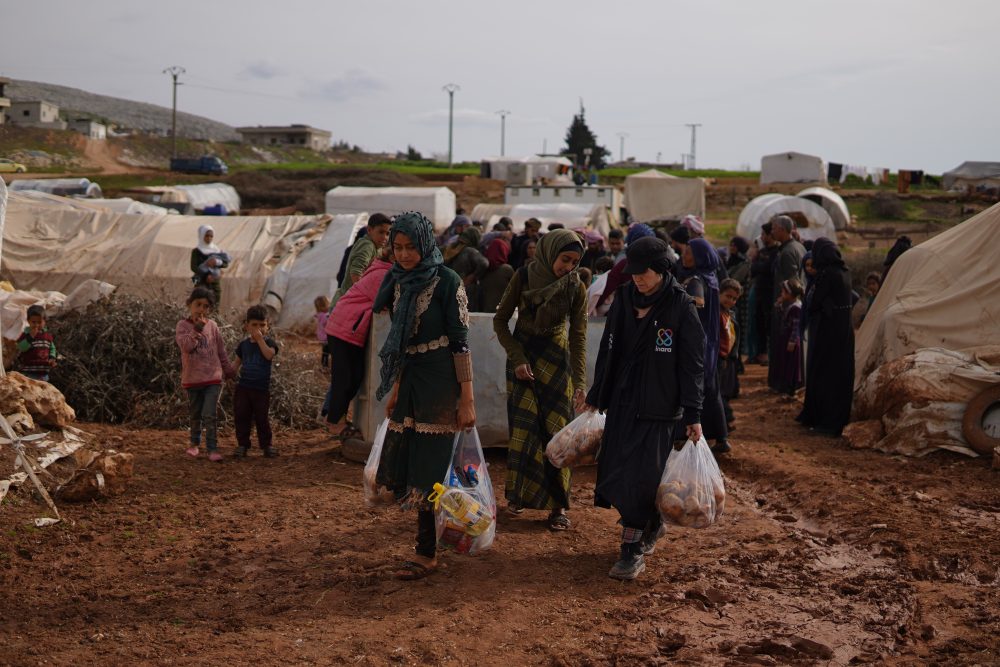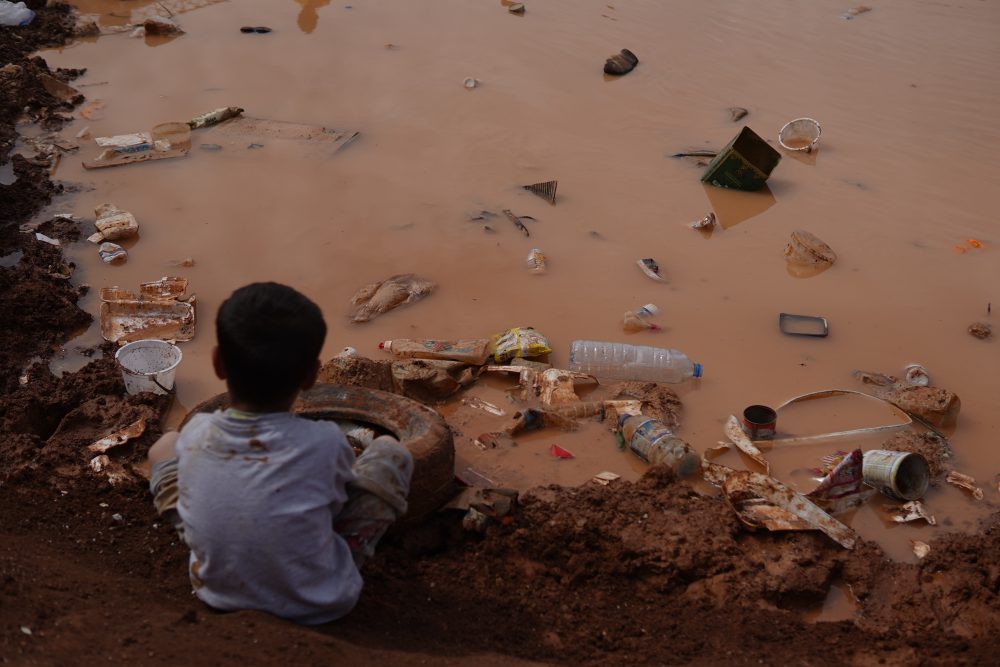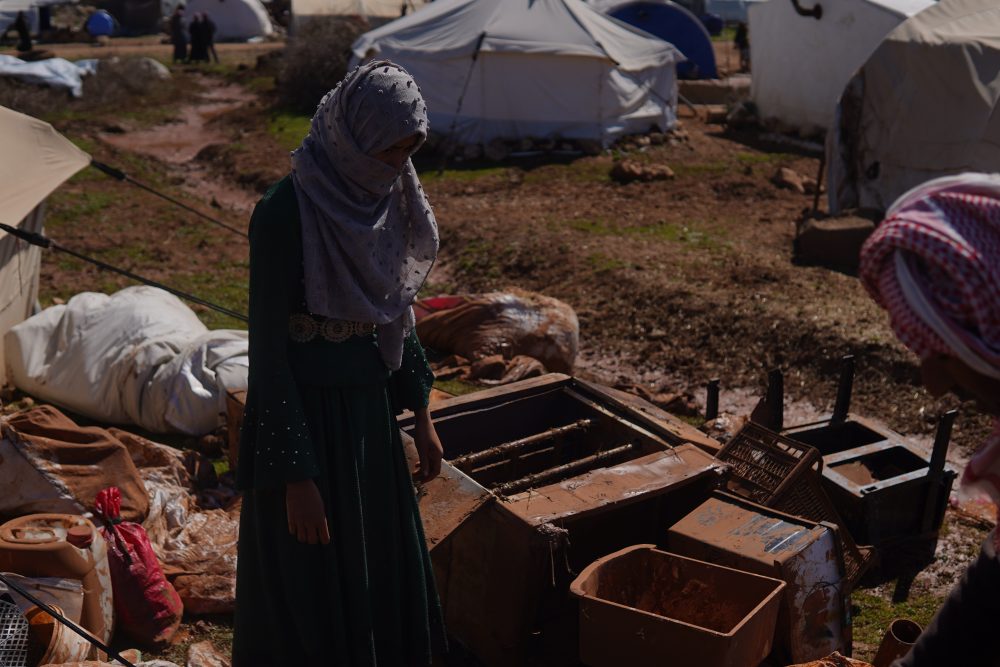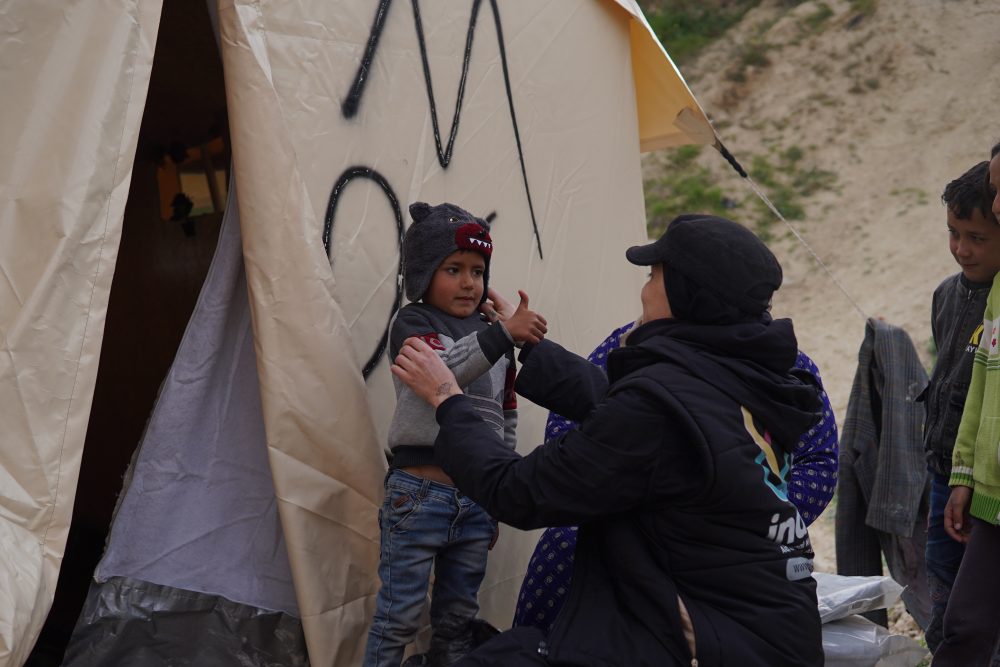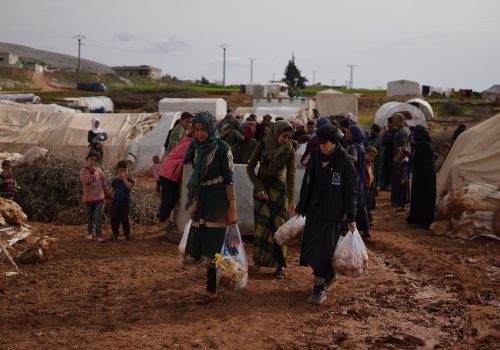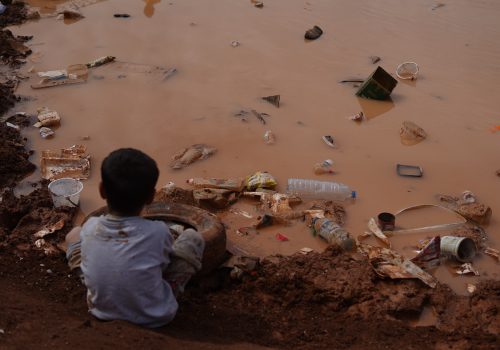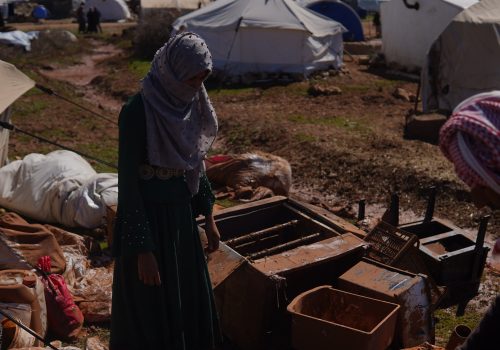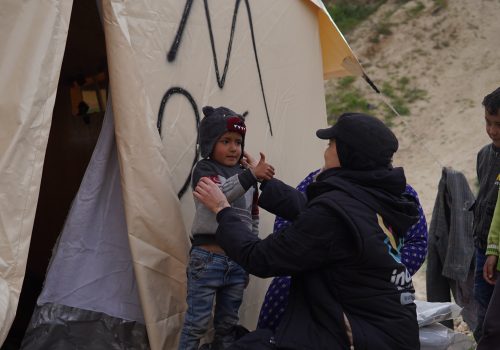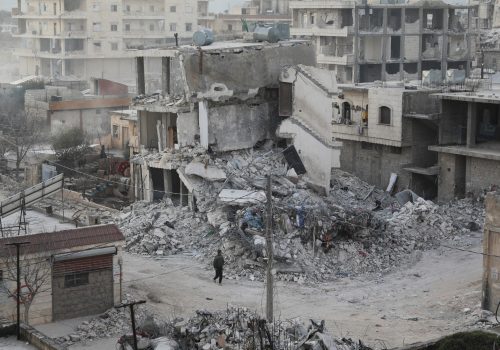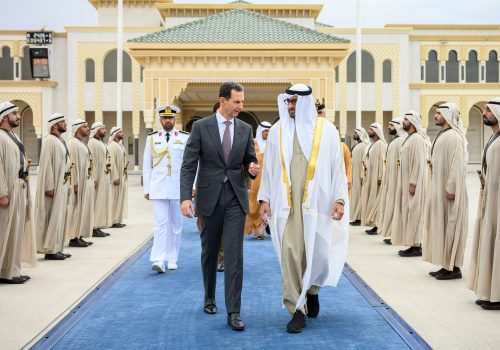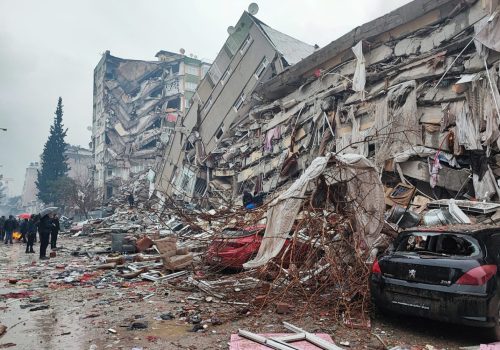“They want us to stay dependent and helpless,” says Zuhair al-Karrat, a general surgeon and health director in Idlib, a city in northwest Syria. “We’ve been saying for twelve years we don’t want humanitarian handouts. We want development projects, we want early recovery projects, we want factories.”
The “they” is the outside world: the United Nations (UN), the United States, other Western nations, Turkey—countries that call themselves “friends of Syria” but have their own interests at the core of their Syria policies. It’s also Russia, Iran, and the Arab nations that are “normalizing” relations with Damascus.
I know this region well, having traveled there countless times as a senior correspondent for CNN. But this trip in March, after the earthquakes that decimated this region, was different. I was not there just to observe; I was on a humanitarian mission with my charity, the International Network for Aid, Relief, and Assistance, or INARA. Greater insight into the aid world and how it functions has worsened my frustrations. I found myself muttering repeatedly, “It’s broken. This isn’t right.”
It has been well over a decade since the first of Syria’s displaced settled in these hills and fields in northwest Syria. They were the residents of Jisr al-Shougour, bombed in June of 2011. Each time I visit, I recall meeting those first arrivals stretching canvas between olive trees for shelter, and the young girl I met sleeping out of the back of her family’s van, telling me they had just come for a few days. Over time, the population swelled with those who fled Aleppo, Homs, Hama, Damascus, and elsewhere.
The population in Idlib province has more than tripled since people first took to the streets twelve years ago, from under one million to more than three. Hospitals and schools were bombed and not rebuilt. Factories ceased to function or are now in regime territory, meaning the job opportunities and products are inaccessible for those in the rebel-held northwest of the country. Some fields are planted, but many remain unsown. There is potential but no opportunity.
Every year, as has been the case for more than a decade, there are pleas for more funding for food baskets, for winterization campaigns with images of little faces shivering in subzero temperatures. Every year, funding efforts fail to meet their targets and those pleas go unheeded. Fair or not, the prevailing sentiment in Idlib is that UN agencies responsible for shelter want to keep the population in tents.
I met Ahlam al-Ahmad as she slogged through knee-deep mud. Floods had just ravaged her small camp on the edge of agricultural fields in Idlib, the water so powerful it swept away everything in some of the tents, drowning clothes, kitchenware, mattresses, blankets, small stores of rice, potatoes, and jars of lovingly prepared Ramadan stuffed vegetables.
Like hundreds of thousands here, she was displaced by war, running away with nothing but the clothes she had on. It has been all but impossible for her family to get back on their feet, to rebuild even the smallest fraction of what they lost.
“Why do we live here?” she asks rhetorically. “It’s for work. We women work in the fields, it’s the only thing available.”
“I mean we had sorted ourselves out, sort of,” she continues, her voice cracking as she points to what they were able to salvage from the muck. It took her family years to achieve this meager progress—an existence in three tents, one of which acts as the kitchen. But even with four of them working the fields, they couldn’t afford a home with walls—not when their labor yields just three dollars a day. And there is such a yearning for walls.
Adults yearn to lean back against a wall, while many young children don’t even know what it is to live within a stable structure.
Moving beyond an emergency response
Spiraling inflation, coupled with rising global prices, has pushed this population even deeper into poverty. And yet last year the UN barely met half of its funding goal for Syria. The argument has long been that funding the sorts of projects that would allow greater autonomy for the northwest region—such as building proper shelters, factories, and schools—was too risky, what with the incessant and unpredictable Russian and Assad regime bombing campaigns.
However, for more than three years now the battle lines have remained stable, and the skies no longer buzz with fighter jets raining death and destruction. Yet the humanitarian framework around Idlib is still viewed through the prism of emergency response. That needs to change.
Aside from the emergency response to the recent earthquake, the bulk of funding opportunities for projects in Syria are for small-scale development—efforts such as vocational training and microgrants—and civil engagement interventions. These activities provide little help to the population. Instead, they permit outside players to claim that they support development.
Civil engagement is important and can bring together inspiring minds, but it’s a fruitless exercise based on donor desires and not realities on the ground. “You can’t expect someone who is tunnel-focused on mere survival, on the next meal, to be able to have the mental capacity to focus on anything else. That is how they keep us weak,” explains Hasan al-Moussa, a Syrian friend of mine active in the humanitarian and development space.
Vocational training and microgrants are important, but they need to be significantly scaled up to have a real impact.
At the same time, there is division among the UN Security Council members not just over cross-border access, but also over whether the focus should be on emergency, early recovery, or development. The emergency cycle that northwest Syria has been stuck in for more than a decade is creating dependency and perpetuating poverty, ignorance and disillusionment, and even that response is falling short of the needs. Early recovery and development projects, which would lay the framework to break the cycle, are too few, too small, too short term. The pattern of the current approach is paralyzing the population in a state of helplessness.
On the ground, the bleak situation can feel almost deliberate, an attempt to keep the population unemployed and uneducated. Just enough comes in for outside officials to point to certain projects and make themselves look good, but nowhere near enough to break the cycle of dependency. More money needs to be put into funding projects that create large-scale job opportunities and access to education for those who have none.
Helping the people of Syria will take moral courage that has long been lacking, and it will take—for once—those who hold the purse strings and power over northwest Syria to put their own politics and interests aside. People deserve the chance to regain agency over their own lives. That is the real humanitarian thing to do.
Arwa Damon is a nonresident senior fellow at the Atlantic Council’s Rafik Hariri Center for the Middle East and president and founder of the International Network for Aid, Relief, and Assistance (INARA), a nonprofit organization that focuses on building a network of logistical support and medical care to help children who need life-saving or life-altering medical treatment in war-torn nations.
Further reading
Fri, Mar 17, 2023
Turkey and Syria’s devastating earthquakes send a reminder to the world: Don’t leave Syrians behind
TURKEYSource By Pınar Dost
The disastrous earthquakes have brought the forgotten fate of Syrians and of Syria to the forefront of the US agenda in the region. They must not be forgotten again.
Thu, Apr 6, 2023
Arab states are normalizing with the Assad regime. This is the Middle East’s 1936 moment.
MENASource By
Now diplomatic relations are set to be restored between Syria and two behemoths of the Arab League: Egypt and Saudi Arabia, who are the holders of the all-important veto on Assad’s return to regional respectability.
Mon, Feb 6, 2023
Experts react: How the world should respond to the devastating earthquake in Turkey
New Atlanticist By
How can the international community help? What will the impact be for a region already reeling from a decade-long war and refugee crisis?
Image: Flooded camp in Idlib province, Syria. Photograph courtesy of Arwa Damon.

